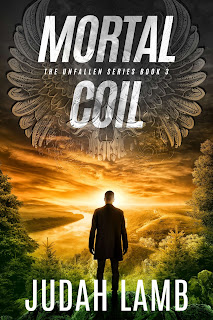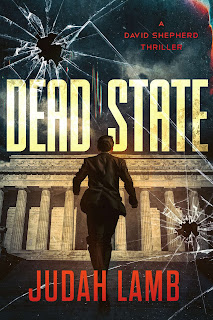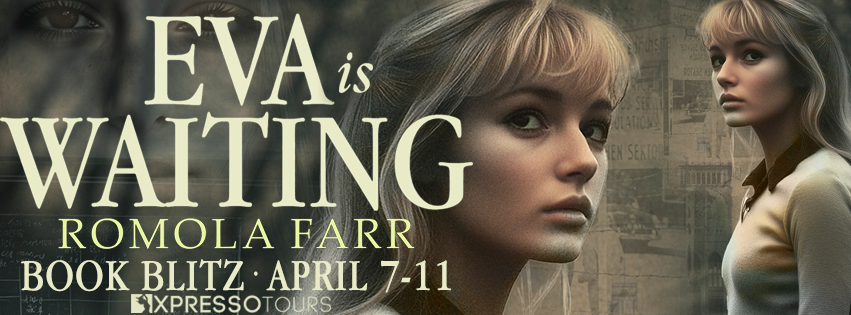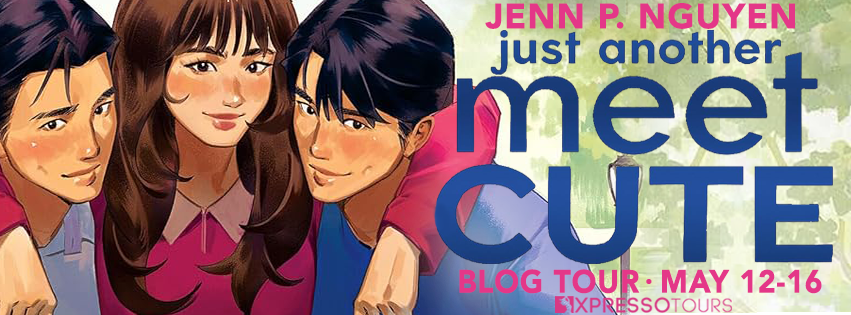Running With Cannibals
by Robert W. Smith
GENRE: Historical/Fiction/Thriller
BLURB:
On
the run from a hangman’s noose, a young man joins the army in
search of anonymity, but lands in the Philippines in the closing
phase of the war (1901), where his life intersects with a beguiling
and mysterious young Filipina, a disillusioned Catholic priest and an
American “Negro” deserter. They join forces, each in his or her
own way, to hold back the tide of greed and colonial barbarity from a
ravenous Eagle. At great cost, the young soldier will find his place,
his people and himself. But to end his running, he must endure the
last battle and the dark jungle beyond that holds the key to his fate
and future.
One will die in
the fight. One will learn that truth wears no flag and must be
pursued and safeguarded, no matter the price. The other two will live
forever, legends in the minds and hearts of the Filipino people.
“Good evening, Marty,” he said, resting his (behind) on the scratchy log beside his friend, careful to avoid the parallel ditch underneath and just behind.
Looking up and framed by the dim light, Marty said, “Good evening, Ethan. Beautiful night. In a week or so, the bark will be worn down. It won’t be so damned scratchy. People will flock here at night just for the view.”
“You never stop, Marty.”
So they sat there, side by side, beneath a canopy of stars. “What are you doing here, Ethan? Marty asked pensively. “I mean why the army? I know you don’t want to be here.”
Marty was his best friend, his only friend if you didn’t count Jonesy, but a confession now couldn’t help either of them and might even put Marty in jeopardy. As long as Marty was in the dark, nobody could credibly accuse him of concealing a fugitive. So, he told his friend a small part of the truth. “My old man was with the 62d Pennsylvania in The War. It kind of defined him. You know?”
“Yeah, I get it. I wanna be like my father. That’s one of the outfits in the fancy French uniforms. Lifelong glory and respect. Well, Ethan, you missed your war. No glory here, but you already know that.”
The nocturnal jungle behind them offered only silence, save the clatter of crickets. There they sat for a fair spell, two bare behinds under a crescent moon on the edge of the jungle at the end of the world. For a long while, neither man felt the need to break the silence. Then, just as Ethan had decided to tell his friend about Tala Espinosa, Marty announced quietly, “I’m a priest, Ethan.”
“What?”
“A Roman (XXXXXX) Catholic priest.”
Interview with Robert W. Smith
How did you become involved with the subject or theme of your book?
This question strikes directly to the heart of my Running with Cannibals and I’m tickled pink for an opportunity to tackle it. The short answer is that I had to write it. During general research, I discovered the true story of two remarkable people from opposite ends of the earth, divided by language, culture and a brutal war of colonial aggression, but united by a love of justice, a sense of compassion and a commitment to duty. I found it irresistible.
In school, I heard in passing about the “Philippine Insurrection,” a brief and minor conflict in the aftermath of the Spanish-American War, a subject steadfastly ignored in U.S. History books. With a little digging on the internet, I uncovered the facts of the so-called “insurrection,” a version based on truth and more fairly represented by Filipino historians and official U.S. Army records. Filipinos more accurately call the conflict, “The Philippine-American War.” Ultimately, the conflict held lessons that might have altered the course of history, including the U.S. involvement in Vietnam.
As my research deepened, I learned of America’s Age of Manifest Destiny, a time during which powerful forces pushed the McKinley administration into a policy of colonialization modeled on the British experiences in Africa. The policy was motivated partially by a perceived need to control valuable trade routes and raw materials in the Far East and resulted in the U.S. “purchasing” the Philippines from Spain after vanquishing her meager forces in battle. Some historians simply attribute the entire policy to greed.
The result was accurately predicted by no less than Samuel Clemens, aka Mark Twain, in his famous essay, “To the Person Sitting in Darkness.” U.S. forces occupied the seven thousand Philippine Islands, formed a military government and embarked on a brutal war of aggression against the Filipino people. I was struck by the parallels to the U.S. involvement in Vietnam and to the general ignorance of history that certainly contributed to the initial acceptance of U.S. policy in Southeast Asia.
Delving deeper into that time and place, I learned the true love story of a Filipina, Casiana Nationales (Geronima) and Sgt. Frank Betron of the U.S. 9th Infantry Regiment and the so-called “Balangiga Massacre” in which villagers rose up in defiance of their occupiers, killing some fifty American soldiers. Filipinos call it the Battle of Balangiga.
Geronima is a national heroine in the Philippines, a strong and beautiful woman of inexplicable influence who fell in love with Sgt. Betron and yet opted to side with her people against the Americans. Little is known about the details of their love affair. Those details of their love are fictionalized, the product of my imagination, but the romance is not. Betron lived the rest of his life in the Philippines and raised a family. To me, bringing real characters to life in a fictionalized, plausible story is the most exciting achievement for an author. Once I knew these characters, this place and time, I had to write the story.
What were your goals and intentions in this book, and how well do you feel you achieved them?
My objective was to tell a great story based on the lives and times of real people, a story that would make people think. Since my youth, I’ve read everything I could get my hands on that interested me, from WWII histories to anything in historical fiction and intelligent, thoughtful thrillers. In adulthood, I began to focus primarily on writers like Graham Green and Len Deighton, import writers telling thrilling stories consistently with a theme, some exploration of humanity, inhumanity, brotherhood, colonialism, war, ant-war. It was always there and it’s what drew me to them in the first place.
My first book was a legal thriller, “Immoral Authority,” published by a wonderful 2000 startup small press. Of course, there was no self-publishing then. One review said it “read like a first novel.” I think the woman was right. The next book was better, but I had no interest in writing more legal thrillers. My head was always in the clouds somewhere with Len Deighton’s two heroes of “Goodbye Mickey Mouse,” brothers in all but blood, one mortally wounded, doomed to crash and both waiting for the moment the sea would claim young Mickey. Two simple salutes and an exchange of smiles across P-51 cockpits told a tale I could never forget, brought it to life without a single word and made me cry, bringing me closer to an understanding of brotherhood than could expertly crafted pages of conversation or narrated reflections. That’s when I recognized my mission, bringing my commentary and observations to life in compelling stories of memorable characters in history. I hope I achieved that in Cannibals.
What was the hardest part of writing this book?
The hardest part was writing my female co-protagonist, and on every level. First, she’s a woman and I’m not. My wife used to tell me to avoid going too deeply into female characters because I think like a man. Secondly, she’s Filipina, which raises all kinds of touchy cultural issues. And I want Filipinos to read this book, so I tried hard to get her right and believable. I even had two Filipina friends review the book for those issues. Finally, and most importantly, her fictional persona is loosely based on a revered and much-loved figure in Filipino history. So if Filipinos don’t like her, it’s game over for me.
What did you enjoy most about writing this book?
I seem to always include a tormented priest in my novels and no exception in the new book. This priest sneaks up on you when you expect it least—literally. He’s lost his faith and turned his back on the Church. He’s brilliant, worldly and broadly educated, but riddled with guilt, regret and self-doubt. I can’t tell you who he is because it would be a spoiler, but he likes girls, I mean really likes girls. I can’t seem to avoid having a jaded or troubled priest. I was raised a strict Catholic and am still recovering.
Were there alternate endings you considered?
Never.
Can you share some stories about people you met while researching this book?
The most memorable ones came out of my research and made their way into the book, the most notable of which was David Fagen, a self-described “Negro” soldier from the U.S. 24th Colored Infantry Regiment. Fagen deserted the U.S. Army and fought bravely for the Filipino forces until the end of major hostilities. He achieved the rank of Captain and was highly respected by his Filipino comrades. They referred to him as “General” Fagen. To the Americans, of course, Fagen was a traitor. His fate is still a mystery. How can you resist that?
What genre of books do you enjoy reading?
Anything involving history or interesting historical figures.
AUTHOR Bio and Links:
Bob was raised in Chicago, enlisting in the Air Force at age eighteen during the Vietnam War. Following a year of intensive language training at Syracuse University, he served three years as a Russian Linguist in Security Service Command, a branch of the NSA. Upon return to civilian live, he attended DePaul University and The John Marshall Law School in Chicago on the G.I. Bill while working as a Chicago Transit Authority Police Officer. Thirty-odd years as a criminal defense lawyer in Chicago ensued. His first book was Immoral Authority (Echelon Press, 2002) followed by Catch a Falling Lawyer (New Leaf Books, 2005) and The Sakhalin Collection (New Leaf Books, 2007, hardcover)
Social Media Links
Goodreads ~ Email ~ Amazon ~ Facebook






















































































































6 comments:
Sounds like an interesting book.
Sherry, Hello again. I soooo appreciate your support
nice cover
bn, thanks again. Great to "see" you again. So I have to tell you, every time I look at a blog or interview comment, I try to imagine what that person looks like, sounds like, where he or lives, even age. You get the drill. It's alot easier when the reader's online name is Bea or Eva or Sherry or Ben, but bn? gravy train? I still try lol. Not surprisingly I'm wrong twice as often. Enjoy your day.
Great excerpt, the book sounds very good! How did you pick the book cover?
Happy Friday! I hope that you have enjoyed your book tour and I wish you the best of luck in all of your future endeavors. I have enjoyed getting to know you and your work throughout this tour and I am looking forward to reading your books. Have a great weekend!
Post a Comment